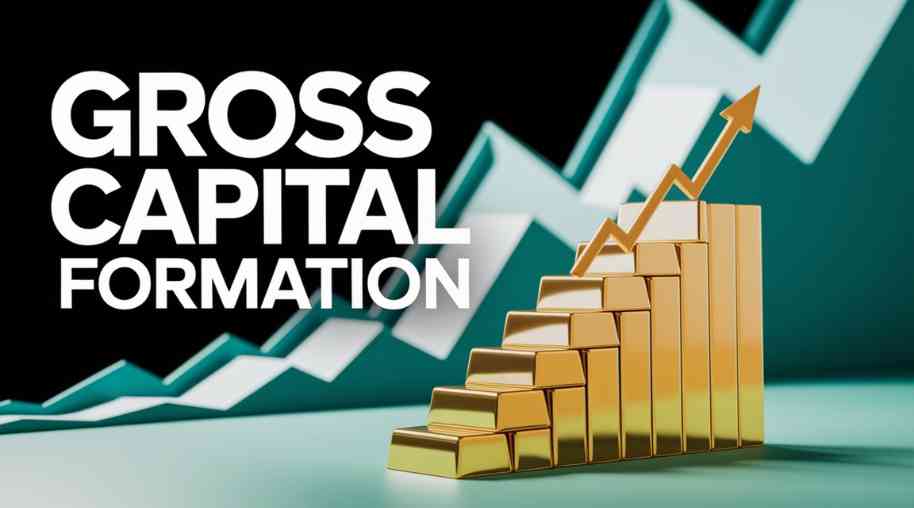GCF Full Form-Gross Capital Formation
by Shashi Gaherwar
0 2268
Introduction
Gross Capital Formation (GCF) is a key economic indicator measuring the total value of investments in an economy over a period. It includes investments in physical assets like machinery, infrastructure, and buildings, which enhance a country’s production capacity. GCF reflects a nation’s ability to sustain economic development and drive long-term growth through capital accumulation.

What is Gross Capital Formation?
Gross Capital Formation refers to the total increase in physical assets within an economy, excluding depreciation. It includes:
- Gross Fixed Capital Formation (GFCF): Investments in fixed assets like infrastructure, buildings, and machinery.
- Changes in Inventories: Stocks of goods businesses accumulate or reduce.
- Net Acquisition of Valuables: Investments in assets like gold, art, or other valuables.
Importance of Gross Capital Formation
- Economic Growth and Development: High GCF drives productivity, industrialization, and job creation, fostering higher growth rates.
- Infrastructure Development: Investments in transportation, energy, and communication enhance efficiency and attract further investments.
- Capital Goods and Industrial Expansion: Supports technological advancements and productivity in manufacturing and industry.
- Improvement in Living Standards: Investments in housing, healthcare, and education enhance quality of life.
Factors Affecting Gross Capital Formation
- Government Policies and Economic Stability: Supportive fiscal and monetary policies and political stability encourage investment.
- Foreign Direct Investment (FDI): FDI inflows boost capital formation with new technologies and jobs.
- Interest Rates and Credit Availability: Low interest rates and accessible credit promote business expansion.
- Consumer and Business Confidence: Positive market sentiment drives investment in operations.
Gross Capital Formation vs. Savings
Savings represent unspent income, while capital formation is the investment of savings into productive assets. High savings alone are insufficient; they must be channeled into investments to fuel economic growth.
Trends in Gross Capital Formation Across Economies
- Developed Economies: High GCF focused on advanced technology, sustainable energy, automation, and AI.
- Developing Economies: Investments in infrastructure, urbanization, and industrialization, often reliant on FDI and government spending.
- Emerging Markets: Rapid GCF growth driven by middle-class consumption, digital transformation, and sectors like e-commerce, fintech, and renewable energy.
Challenges in Capital Formation
- Insufficient Financial Resources: Developing nations face low savings and limited investment capital.
- Economic Uncertainty: Global crises, recessions, and policy changes impact investor confidence.
- Inefficient Allocation of Resources: Mismanagement leads to unproductive investments.
Strategies to Improve Gross Capital Formation
- Encouraging Private Investments: Offer tax incentives and subsidies to promote capital investment.
- Enhancing Financial Systems: Strengthen banking and credit infrastructure for investment opportunities.
- Public-Private Partnerships (PPPs): Collaborate to accelerate infrastructure projects.
- Promoting Digital and Technological Innovation: Adopt Industry 4.0 technologies to improve capital efficiency.
Gross Capital Formation is vital for economic growth, job creation, and national development. By investing in productive assets, economies enhance long-term stability and competitiveness. Governments and policymakers must foster a favorable investment climate to ensure sustained growth through effective capital formation.
Further Learning Resources
If you’re passionate about building a successful blogging website, check out this helpful guide at Coding Tag – How to Start a Successful Blog. It offers practical steps and expert tips to kickstart your blogging journey!
For dedicated UPSC exam preparation, we highly recommend visiting www.iasmania.com. It offers well-structured resources, current affairs, and subject-wise notes tailored specifically for aspirants. Start your journey today!

Share:









Comments
Waiting for your comments